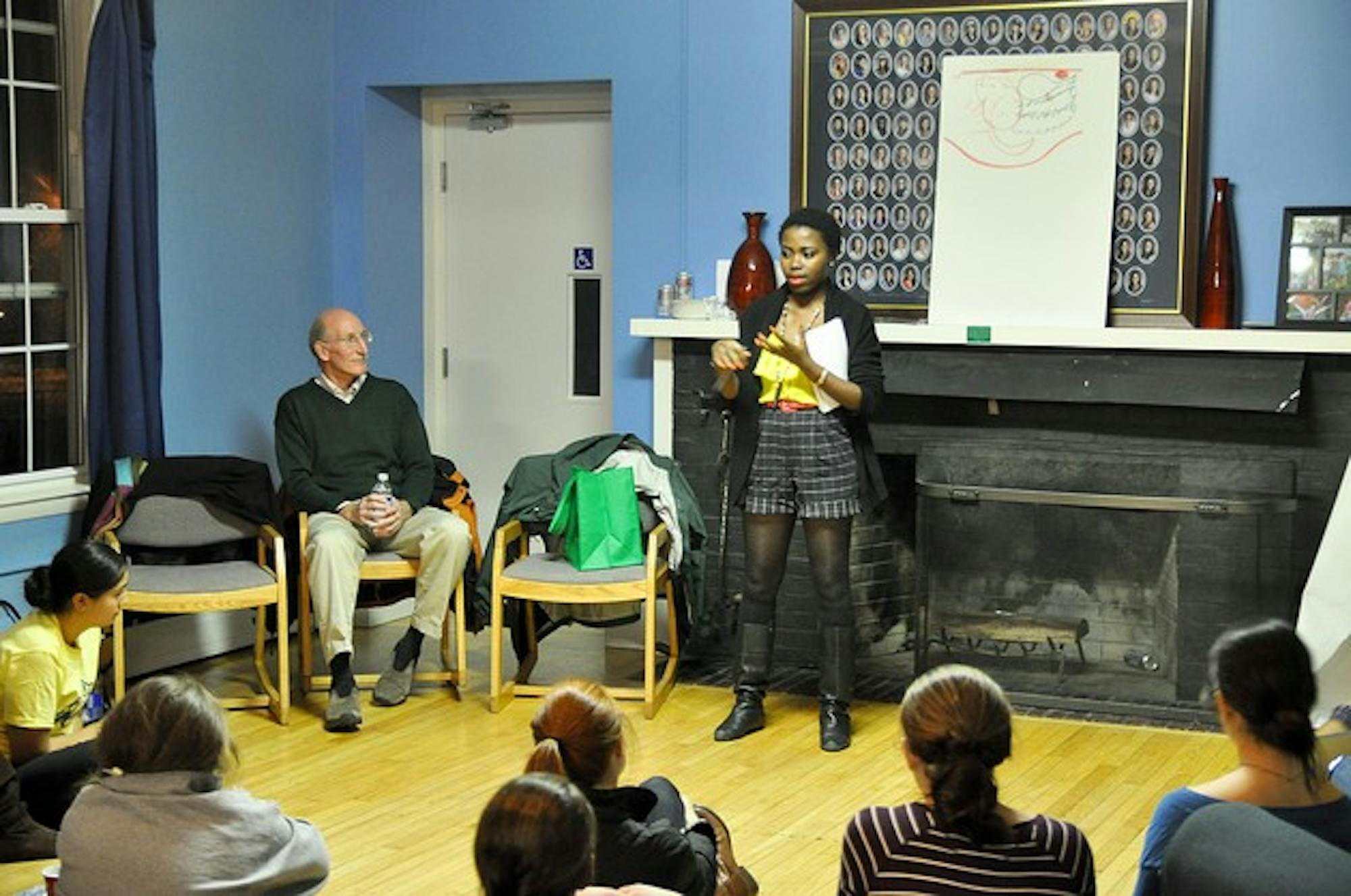The talk was led by two Dartmouth-Hitchcock Medical Center gynecologists William Young and Paul Manganiello and Stella Safari '13, who discussed post-traumatic fistulas that occur as a result of sexual assault, especially among women in the Congo, where Safari is from. The students who organized the talk are part of the Mountains for Moms group at Dartmouth.
A fistula is an opening in the genital tract between two organs as a result of obstetric complications or sexual assault, according to Young. These result in the death of tissues between openings in the vaginal tract, which often leads to incontinence the constant leakage of urine or stool.
Most fistulas occur because of childbirth complications and unusually long labors, while post-traumatic fistulas are less common, according to Young.
"This is a war injury where someone has tortured somebody not with a penile penetration, typically, but with a blunt object to torture the tissues in the vaginal canal," Young said.
The World Health Organization classifies these as combat injuries, Young said.
Safari spoked about the psychosocial impact of these kinds of fistulas on the women in civil war-stricken Congo. Rebel factions in the Congo use rape as a "tool of war," raping women and torturing them to ensure that they become unable to reproduce, according to Safari.
"It's very systematic," Safari said. "The rape is not for sexual pleasure. It is to make sure that the women cannot reproduce again."
She also talked of the difficulty of finding medical care for fistulas in the region. A fistula repair surgery costs about $200, she said, and the hospitals that offer such treatment are typically located in urban areas, far away for the rural women who are the main victims of both obstetric and post-traumatic fistulas. Many women also need permission from their husbands to travel to these hospitals because they are the primary care givers in the households, according to Safari. The journey itself is arduous, often taking an entire day on foot.
"It's really bad on the women from so many aspects," Safari said. "I mean, the health aspect is already devastating. Also, my culture is not very open when it comes to sexuality, especially women and sexuality. A woman's worth is based on her ability to produce children. So, it's a really hard issue to consider from the social aspect."
The incidence of obstetric fistulas is higher in the developing world because many women have a large number of pregnancies or are very young mothers with underdeveloped pelvic areas, according to Manganiello. The treatment is extensive and requires grafts from the thigh to rebuild the vagina. He added, however, that one surgery is often inadequate to repair the damage fully. "The best way to cure fistulas is prevention," Manganiello said. "For this, women need to be empowered, they need to be educated, they need to restrain child-bearing until they are old enough. Also, there should be zero tolerance toward rape as a weapon of war." Mountains for Moms is trying to make the public more aware of these issues through their hike. The group has been organizing events to raise money for a non-profit organization, Operation OF (Obstetric Fistulas), to fund surgeries for 170 women in the Teso region of northeastern Uganda. The group was started by several Dartmouth students, in collaboration with a similar group at Cornell University, Fistula Free Climbers.
Mbumbijazo Katjivena '12 said the idea for the group came to him from an old dream of his to climb Kilimanjaro with his high school classmates. The group was created this past spring and has since gained members committed to the climb or fundraising. "It's something I would do anyway," Katjivena said. "But doing this for this silent disaster is worthwhile. People ask us, Why climb?' I mean, why did Gandhi going on a hunger strike in a small village make a difference? Something like this draws attention to it and then people ask questions."
The climb will provide a platform to help the group reach out to more people, he said.
"You know, there is passive giving where you go online and donate $5," he said. "But we're doing active giving." The funds raised from the organization's activities will all be donated to Operation OF, which identified the 170 recipients of the funds and the hospitals that would treat them, Katjivena said. At the conclusion of the talk the speakers opened up the floor for student questions. Manganiello was asked about the details of getting surgery to correct a fistula. Messages are sent to patients that alert them when doctors are available, and patients come to the hospital during those hours. Safari added that in the speciality hospitals in Congo, patients are put on waiting lists and are attended to as doctors become available.
Young added that very few women undergo the surgery. The World Health Organization has found that of the 2 million women in 45 countries estimated to be affected by fistulas, only 12,000 have had surgeries since 2003, according to Young.




